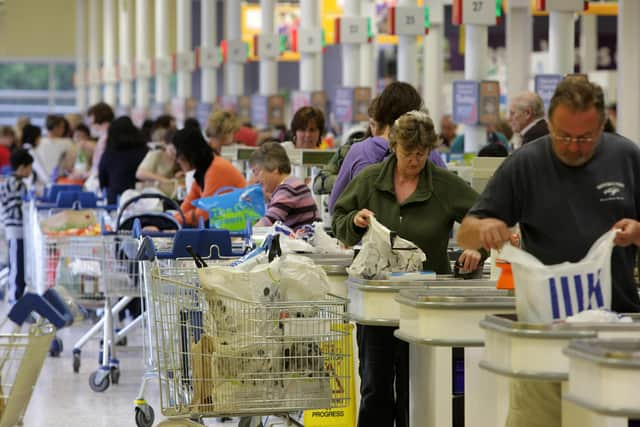Even before energy crisis, UK was a wealthy country that allowed people to suffer and die from poverty – Laura Waddell
The subject has truly broken through: it is what everyone is talking about, heard in the chatter of supermarket queues, bus stops, and barbers.
We are now at a point where the average British worker, putting in a full-time shift, can’t be confident about meeting their bills without strain. Why, workers are asking themselves, do we slog day in, day out, and still have worries about money at the end of the day? It’s not fair. It’s not right.
Advertisement
Hide AdAdvertisement
Hide AdWhile ordinary people wonder what on Earth they’re going to do, there is a stark absence of leadership in the political sphere.
With the party of government staring at its own navel – as ever they do – distracted on this occasion by the dragged-out leadership contest between Liz Truss and Rishi Sunak, Boris Johnson is on his way out the door but has been no more noticeably absent than at any other point of his sorry, self-serving reign.
Putting aside any seedy anecdotes about his personal life or partying during the pandemic, as he is often characterised by, there are far more damning anecdotes. Johnson was the Prime Minister who couldn’t be bothered to turn up to the first Cobra meeting about Covid. Public wellbeing is not a priority of the Conservative party.
Soaring gas production prices are a global issue exacerbated, of course, by the war in Ukraine. But in a time of crisis, Brits are up against not only today’s shoddy, absent leadership, but the prior privatisation of Britain’s power supplies.


The essential human requirements of power and heat rest on one plate of the scales, private profit on the other. If it is to be tipped in our favour, it won’t be without resistance.
Whenever the subject of renationalisation is raised, so too is how difficult it would be to unpick its knots. As it stands now, energy caps notwithstanding, these private companies hold literally a great deal of power over a great British public growing frightened to turn on its heating. Will any lesson be learnt from this?
Meanwhile, the Conservative government at Westminster continues chipping away at one of Britain’s greatest achievements, the NHS, privatising it in increments both bluntly and by stealth.
If we don’t want to one day see the kinds of medical bills imposed on Americans posted through our own letterboxes, if we believe that providing medical care should be the responsibility of the government, we should be keeping a much closer eye on all essential public infrastructure that risks being hacked to bits and sold to the highest bidder.
Advertisement
Hide AdAdvertisement
Hide AdMore Brits than ever are worrying about their ability to heat their homes this winter. But it mustn’t be overlooked that before this crisis started to escalate, Britain was already a wealthy nation allowing those on the margins to suffer fuel and food poverty.
Under austerity, there have been tens of thousands of unnecessary deaths. It’s time we expected our government to provide for its citizens’ essential needs, and hold them accountable for their failure to do so.
Comments
Want to join the conversation? Please or to comment on this article.

